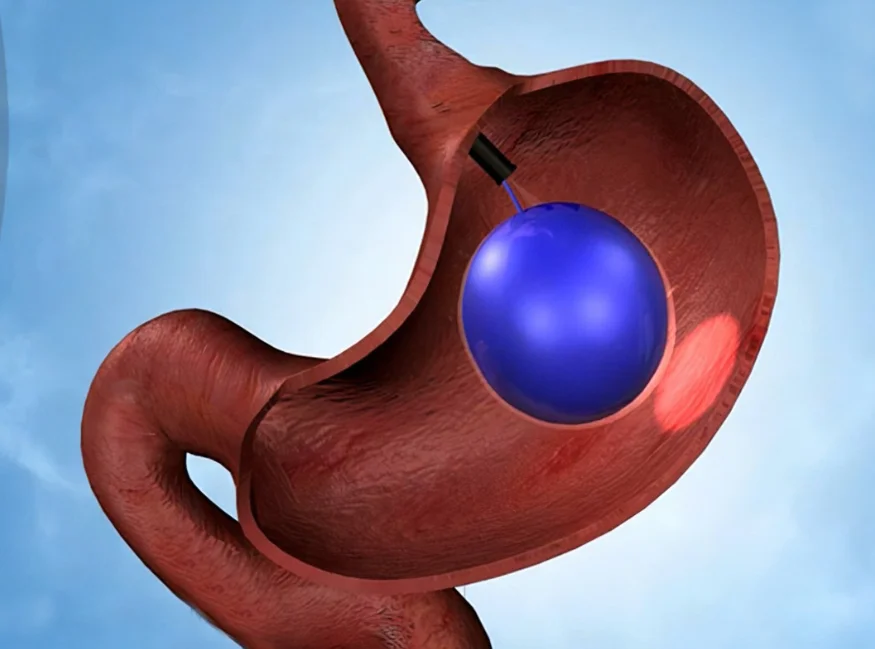Edrophonium and atropine are available by the brand name of ENLON-PLUS. It is a combination of edrophonium that inhibits the enzyme acetyl-cholinesterase and atropine that is added to minimize the muscarinic adverse effects of edrophonium.
Edrophonium and atropine Uses:
-
Respiratory depression caused by curare overdosage:
- It is used as an adjunctive treatment of patients with respiratory depression caused by curare overdosage.
-
Reversal of nondepolarizing neuromuscular blocking agents:
- Additionally, it is used to undo the effects of drugs that prevent neuromuscular nondepolarization.
Adult dose:
Edrophonium Dose to reverse neuromuscular blockade:
- 0.05 to 0.1 mL/kg intravenously given over 45 to 60 seconds.
- The dose delivered is equivalent to 0.5 to 1 mg/kg of edrophonium and 0.007 to 0.014 mg/kg of atropine.
- Rarely, a dose exceeding 1 mg/kg is required.
- Note: Patients should be monitored closely for bradyarrhythmias.
Dose in Children:
Not indicated. [/bg_collapse] [bg_collapse view="button-blue" color="#f7f2f2" icon="arrow" expand_text="Dose in Pregnancy & lactation" collapse_text="Dose in Pregnancy & lactation" ]
Pregnancy Risk Factor C
-
- The drug has not yet been tested in human or animal pregnancies.
- You can also contact individual agents.
Use of atropine and edrophonium during lactation:
- This combination has not been shown to be safe for lactating women.
- You can also contact individual agents.
Dose in Kindney disease:
In the manufacturer’s labeling, dose adjustment has not been provided.
Dose in Liver disease:
In the manufacturer’s labeling, adjustment in the dose has not been provided in patients with liver disease.
Side effects:
See side effects of individual agents (atropine and edrophonium)
Contraindications to Edrophonium and atropine:
- Allergy reactions to drugs (edrophonium, atropine) and any component of the formulation
- Occlusion of the intestines or obstruction of the urinary tract.
- Acute glaucoma, synechiae or adhesions between iris and eye lens, and
- Pyloric stenosis.
Warnings and precautions
-
Sensitivity to anticholinesterase
- If the patient is allergic to the drug, the dose can be decreased or discontinued.
- You may withhold treatment until your patient becomes more sensitive.
-
Respiratory arrest
- Rarely has there been a case of respiratory arrest with this drug.
-
Tissue irritation
- If the drug is extravasated, it may act as an irritant and cause tissue irritation.
-
Arrhythmias
- Bradyarrhythmias can develop. Patients at-risk for cardiac arrhythmias should be used with caution.
-
Asthma
- Patients suffering from bronchial asthma should be cautious when using the drug.
-
Chronic lung disease
- Patients suffering from chronic lung disease should be cautious.
-
Prostatic hyperplasia
- It can cause urinary retention so patients with prostatic hyperplasia should not use it.
-
Myasthenia gravis
- Patients with myasthenia gravis may experience muscle weakness. It should be used with caution.
Edrophonium and atropine: Drug Interaction
Note: Drug Interaction Categories:
- Risk Factor C: Monitor When Using Combination
- Risk Factor D: Consider Treatment Modification
- Risk Factor X: Avoid Concomitant Use
Risk Factor C (Monitor therapy) |
|
| Acetylcholinesterase Inhibitors | May diminish the therapeutic effect of Anticholinergic Agents. Anticholinergic Agents may diminish the therapeutic effect of Acetylcholinesterase Inhibitors. |
| Amantadine | May enhance the anticholinergic effect of Anticholinergic Agents. |
| Amezinium | Atropine (Systemic) may enhance the stimulatory effect of Amezinium. |
| Amifampridine | Acetylcholinesterase Inhibitors may enhance the therapeutic effect of Amifampridine. Amifampridine side effects may also be increased. Amifampridine may enhance the therapeutic effect of Acetylcholinesterase Inhibitors. Acetylcholinesterase inhibitor side effects may also be increased. |
| Anticholinergic Agents | May enhance the adverse/toxic effect of other Anticholinergic Agents. |
| Anticholinergic Agents | Acetylcholinesterase Inhibitors may diminish the therapeutic effect of Anticholinergic Agents. Anticholinergic Agents may diminish the therapeutic effect of Acetylcholinesterase Inhibitors. |
| Benoxinate | Acetylcholinesterase Inhibitors may enhance the therapeutic effect of Benoxinate. Specifically, the effects of benoxinate may be prolonged. |
| Beta-Blockers | BetaBlockers' bradycardic action may be enhanced by acetylcholinesterase inhibitors. Levobunolol and metipranolol are exceptions |
| Botulinum Toxin-Containing Products | May strengthen an anticholinergic agent's anticholinergic action. |
| Cannabinoid-Containing Products | Cannabinoid-containing products' tachycardic impact may be enhanced by anticholinergic agents. Cannabidiol is an exception. |
| Cardiac Glycosides | Cholinergic agonists may have a more negative or toxic effect when used with acetylcholinesterase inhibitors. |
| Chloral Betaine | May enhance the adverse/toxic effect of Anticholinergic Agents. |
| Cholinergic Agonists | Cardiac Glycosides' AV-blocking effects may be strengthened by edrophonium. |
| Corticosteroids (Systemic) | The hazardous or harmful effects of acetylcholinesterase inhibitors may be increased. Muscle weakness could become more pronounced. |
| Dipyridamole | Acrylcholinesterase Inhibitors' therapeutic impact can be lessened. |
| EPHEDrine (Systemic) | Atropine (Systemic) may enhance the therapeutic effect of EPHEDrine (Systemic). |
| Gastrointestinal Agents (Prokinetic) | Anticholinergic Agents may diminish the therapeutic effect of Gastrointestinal Agents (Prokinetic). |
| Glucagon | Anticholinergic Agents may enhance the adverse/toxic effect of Glucagon. Specifically, the risk of gastrointestinal adverse effects may be increased. |
| Itopride | Anticholinergic Agents may diminish the therapeutic effect of Itopride. |
| Mianserin | May enhance the anticholinergic effect of Anticholinergic Agents. |
| Mirabegron | Anticholinergic Agents may enhance the adverse/toxic effect of Mirabegron. |
| Neuromuscular-Blocking Agents (Nondepolarizing) | The neuromuscular-blocking impact of neuromuscular-blocking agents may be lessened by acetylcholinesterase inhibitors (Nondepolarizing). |
| Nitroglycerin | Anticholinergic Agents may decrease the absorption of Nitroglycerin. Specifically, anticholinergic agents may decrease the dissolution of sublingual nitroglycerin tablets, possibly impairing or slowing nitroglycerin absorption. |
| Opioid Agonists | Anticholinergic Agents may enhance the adverse/toxic effect of Opioid Agonists. Specifically, the risk for constipation and urinary retention may be increased with this combination. |
| Ramosetron | Anticholinergic Agents may enhance the constipating effect of Ramosetron. |
| Ritodrine | Atropine (Systemic) may enhance the adverse/toxic effect of Ritodrine. |
| Thiazide and Thiazide-Like Diuretics | Anticholinergic Agents may increase the serum concentration of Thiazide and Thiazide-Like Diuretics. |
| Topiramate | Anticholinergic Agents may enhance the adverse/toxic effect of Topiramate. |
Risk Factor D (Consider therapy modification) |
|
| Pramlintide | May enhance the anticholinergic effect of Anticholinergic Agents. These effects are specific to the GI tract. |
| Secretin | Anticholinergic Agents may diminish the therapeutic effect of Secretin. Management: Avoid concomitant use of anticholinergic agents and secretin. Discontinue anticholinergic agents at least 5 half-lives prior to administration of secretin. |
| Sincalide | Drugs that Affect Gallbladder Function may diminish the therapeutic effect of Sincalide. Management: Consider discontinuing drugs that may affect gallbladder motility prior to the use of sincalide to stimulate gallbladder contraction. |
| Succinylcholine | Acetylcholinesterase Inhibitors may increase the serum concentration of Succinylcholine. Management: Consider alternatives to this combination due to a risk of prolonged neuromuscular blockade. |
Risk Factor X (Avoid combination) |
|
| Aclidinium | May enhance the anticholinergic effect of Anticholinergic Agents. |
| Cimetropium | Anticholinergic Agents may enhance the anticholinergic effect of Cimetropium. |
| Eluxadoline | Anticholinergic Agents may enhance the constipating effect of Eluxadoline. |
| Glycopyrrolate (Oral Inhalation) | Anticholinergic Agents may enhance the anticholinergic effect of Glycopyrrolate (Oral Inhalation). |
| Glycopyrronium (Topical) | May enhance the anticholinergic effect of Anticholinergic Agents. |
| Ipratropium (Oral Inhalation) | May enhance the anticholinergic effect of Anticholinergic Agents. |
| Levosulpiride | Anticholinergic Agents may diminish the therapeutic effect of Levosulpiride. |
| Macimorelin | Atropine (Systemic) may diminish the diagnostic effect of Macimorelin. |
| Oxatomide | May enhance the anticholinergic effect of Anticholinergic Agents. |
| Potassium Chloride | Anticholinergic Agents may enhance the ulcerogenic effect of Potassium Chloride. Management: Patients on drugs with substantial anticholinergic effects should avoid using any solid oral dosage form of potassium chloride. |
| Potassium Citrate | Anticholinergic Agents may enhance the ulcerogenic effect of Potassium Citrate. |
| Revefenacin | Anticholinergic Agents may enhance the anticholinergic effect of Revefenacin. |
| Tiotropium | Anticholinergic Agents may enhance the anticholinergic effect of Tiotropium. |
| Umeclidinium | May enhance the anticholinergic effect of Anticholinergic Agents. |
Monitoring parameters:
- Vital signs,
- ECG, and
- ventilatory support;
- Neuromuscular function
How to administer Edrophonium and atropine?
IV:
- It is administered as a slow intravenous injection over one minute at a point of at least 5% recovery of twitch response to neuromuscular stimulation (95% block).
Mechanism of action of Edrophonium and atropine:
- Edrophonium
- It blocks the enzyme acetylcholinesterase, which is responsible for reducing acetylcholine. This inhibits the production of acetylcholine in the neuromuscular junction, which facilitates nerve impulse transmission across the myoneural junction. This causes an increase in the cholinergic response.
- When combined with edrophonium, Atropine reduces or prevents muscarinic effects such as bradycardia and bronchoconstriction. It also decreases or eliminates the increased bronchial, salivary, and bronchial secretions that are caused by edrophonium.
See individual agents (Atropine and edrophonium) Onset of action:
- Edrophonium: It takes 3 minutes for the drugs to act when used to antagonize the effects of nondepolarizing muscle relaxants.
- Atropine: The effect on heart rate is immediate
Duration:
- Edrophonium: Antagonism of nondepolarizing muscle relaxants: 70 minutes;
- Atropine: Heart rate: 170 minutes
Protein binding:
- Atropine: ~14%
Half-life elimination:
- Edrophonium: Adults: 1.2 to 2.4 hours;
- Anephric patients: 2.4 to 4.4 hours
Time to peak, plasma:
- Edrophonium: Antagonism of nondepolarizing muscle relaxants: 1.2 minutes;
- Atropine: Heart rate: 2 to 16 minutes
Excretion:
- Edrophonium: Primarily urine (67%)
International Brand Names:
Enlon-Plus
Edrophonium and atropine Brand Names in Pakistan:
No Brands Available in Pakistan.




